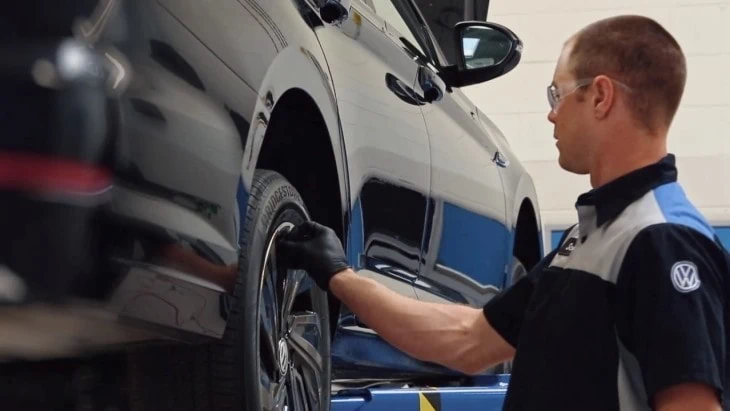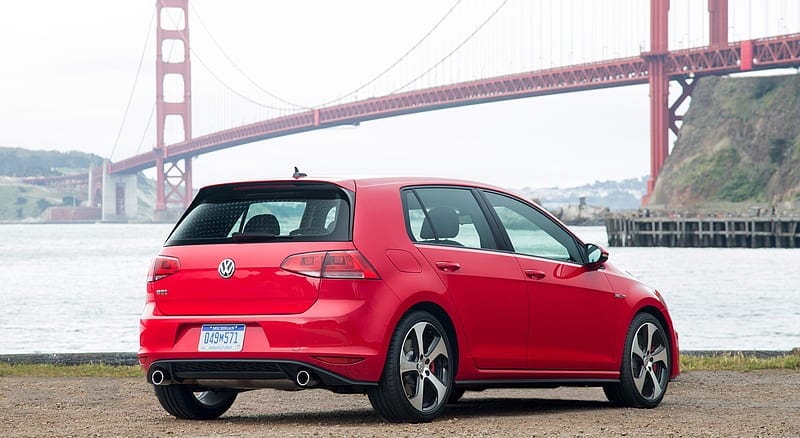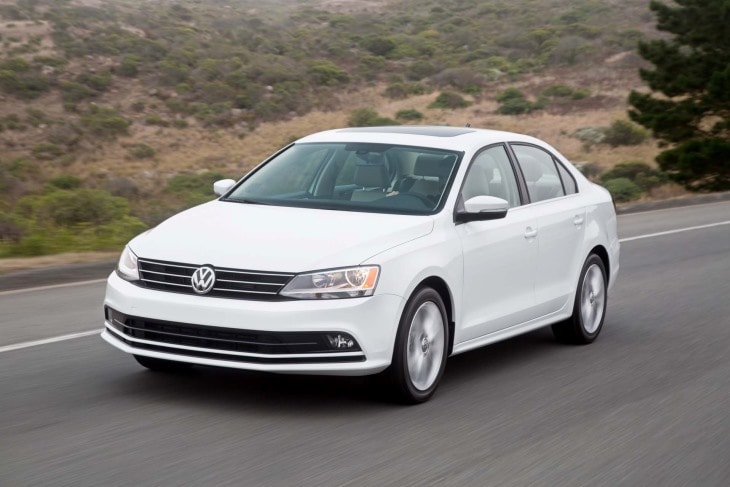Volkswagen is a German car brand most famous for the unique Beetle, or, as many kids know it, the “slug bug”. Volkswagen roughly translates to “the people’s car”. Located out of Wolfsburg, Germany, Volkswagen was the second largest manufacturer in 2016.
In spite of their sales numbers, Volkswagen does not have the best reputation for quality and longevity. In particular, models from the mid-2000’s were victim to frequent breakdowns failures. So, have Volkswagens improved? Just how long do they last? Which model is the most reliable?
In general, Volkswagen vehicles last 100,000-200,000 miles, or 7-13 years. This is slightly less than the average vehicle lifespan of 150,000-200,000 miles, or 10-13 years. As a brand, Volkswagen has low overall reliability ratings, especially for their mid-2000’s sedans. However, their reliability has improved with their more recent models.
Table of Contents
- How Many Miles Do Volkswagens Last?
- How Many Years Does Volkswagen Last?
- How Reliable Are Volkswagen?
- Which Volkswagen Model is the Most Reliable?
- Which Volkswagen Model is the Least Reliable?
- What Are Common Problems with Volkswagen?
- How Long Do Volkswagen Engines Last?
- What is the Lifespan of Various Volkswagen Models?
- Are Volkswagens Reliable Now?
How Many Miles Do Volkswagens Last?
What is Volkswagen’s mileage life, anyway? Depending on the model and model year, most Volkswagen vehicles should last 100,000-200,000 miles with proper care and maintenance.
The expected lifespan across all vehicles is 150,000-200,000 miles. Volkswagen typically falls into that range for normal lifespan expectancy.
How Many Years Does Volkswagen Last?
The average driver puts around 15,000 miles per year on a vehicle. If we do the math, a Volkswagen should last anywhere from 7-13 years. The average vehicle lifespan is 10-13 years.
How Reliable Are Volkswagen?
Volkswagen has mixed reviews for reliability. Historically, their reputation hasn’t always been stellar. So, just how reliable are they?
Reliability Statistics
According to RepairPal, Volkswagen has above-average reliability with a 3.5 out of 5 reliability rating. This makes it 12th out of 32 for all car brands.
Repair Statistics

The average yearly cost for scheduled maintenance and unexpected repairs for Volkswagen is $676. This is slightly higher than the average cost of $652 per year across all car makes and models.
On average, a Volkswagen will visit the mechanic 0.5 times per year for unscheduled repairs. The average vehicle goes into the shop 0.4 times per year.
A severe repair is one that involves a major system in the vehicle and costs more than three times the annual average repair. 11 percent of Volkswagen repairs are considered severe, as compared to an average of 12 percent across all vehicle makes and models.
Which Volkswagen Model is the Most Reliable?
The 2016 VW Tiguan won a dependability award from JD Powers. It was ranked in the top three most reliable small cars, alongside the Audi Q3 and the Chevrolet Sonic in 2016, and the most reliable small SUV, according to JD Powers.
Which Volkswagen Model is the Least Reliable?
According to The Motor Digest, the worst Volkswagens were sedans from the mid-2000s. In particular, avoid the 2003 Jetta, the 2006 Jetta, the 2002 Passat, and the 2006 Passat. Smoking engines, timing belt issues, problems with the water pump, and reverse gear failure are just a few of the problems that plague these Volkswagen models.
What Are Common Problems with Volkswagen?
According to RepairPal, the most common issues with Volkswagen are as follows.
Transmission Shifting Problems
Shifting issues in high mileage vehicles have been reported in the typically reliable Volkswagen Jetta. These problems usually occur after 130,000 miles and often require complete transmission replacement.
Power Window Failure
Power windows are a great feature, except when they stop working. The Volkswagen Beetle has had multiple reports of failed power windows. This is due to a broken window regulator, which is relatively simple and inexpensive to replace.
Premature Headlight Bulb Burnout
The Volkswagen Beetle also has an issue with malfunctioning headlights due to bulb harness failure. This is a safety issue that needs to be addressed immediately. Damaged connectors and bulbs can be replaced easily.
ABS Module Failure
The Anti-Lock Brake System (ABS) may fail due to a faulty control module. This has occurred across multiple model years in the Volkswagen Passat. When the control module fails, the ABS light will illuminate on the dashboard. Replacing the control module is a more expensive repair.
How Long Do Volkswagen Engines Last?

Often, the end of the engine is also the end of the vehicle. Engine replacement is expensive and usually isn’t worth the expense. There are a lot of factors that contribute to the lifespan of an engine.
Engine Lifespan
Proper care and maintenance, such as frequent oil changes and service can help an engine last longer. Modern engines typically have a longer lifespan than older models. One of the best Volkswagen engines is the EA888 1.8l engine. This engine brings power, reliability, and efficiency.
Depending on the year, model, maintenance, and driving habits, engine life expectancy for a Volkswagen is around 100,000-200,000 miles or 7-13 years.
Engine Maintenance
There are steps that car owners should take to insure a long engine and vehicle life.
3,000-7,000 Miles – Oil and Oil Filter Changes
Replace the oil and oil filter every 3,000-7,000 miles, or according to the instructions in the owners’ manual. At the same time, check the transmission fluid, coolant, power steering fluid, and windshield wiper fluid, and top it off as needed.
15,000-30,000 Miles – Air Filter, Power Steering Fluid, and Fuel Filter Changes
Between 15,000 and 30,000 miles, replace the air filter, power steering fluid, and fuel filter. This is also a great time to check system components, such as the HVAC, fuel lines, tires, brake pads, and coolant.
35,000-50,000 Miles – Change Battery and Spark Plugs
Check the battery starting around 30,000 miles, and replace it as needed. Replace the spark plugs and spark plug wires around the same time. Take this opportunity to check the ignition system and suspension.
60,000 Miles – Change Brakes, Hoses, and Fluids
There are some important maintenance items that need to happen every 60,000 miles or so. First, replace the brake pads and brake fluid. Also replace the coolant, radiator hoses, power steering fluid, and timing belt. Perform a thorough vehicle check at this point. Pay careful attention to suspension and tires.
What is the Lifespan of Various Volkswagen Models?
Volkswagen has several variations of these vehicles on the market. There are more electric and hybrid vehicles in the works, as well.
How Many Miles Can a Volkswagen Golf Last?

The VW Golf is a compact, sporty sedan that will last 100,000-150,000 miles. Repairs can sometimes be expensive due to the need for foreign parts. The Volkswagen Golf GTI has worse reliability scores than the base model.
How Many Miles Can a Volkswagen Atlas Last?
The Atlas is Volkswagen’s largest vehicle. This SUV is built on the same platform as the Golf, but it seats up to eight people with three rows of seats.
However, Atlas’s lifespan is estimated at 100,000 miles, or 7 years. Furthermore, it was rated 26 out of 28 for reliability in a midsize SUV by Consumer Reports.
How Many Miles Can a Volkswagen Tiguan Last?
The Volkswagen Tiguan is a sturdy, small SUV that has above-average reliability scores, especially for a Volkswagen. What’s more, its lifespan is above average. Most Tiguans last 150,000-200,000 miles, or 10-13 years. Some drivers have even reported mileage above the 200,000-mile mark.
How Many Miles Can a Volkswagen Taos Last?
The Taos made its debut in 2022. This subcompact SUV is Volkswagen’s smallest SUV. It has great fuel economy and has an expected lifespan of 200,000 miles. The 1.5L turbocharged engine is an updated version of the 1.4L engine that can be found in the more reliable Jetta.
How Many Miles Can a Volkswagen Jetta Last?

The Jetta has the reputation as Volkswagen’s most reliable vehicle. This compact car is Consumer Reports recommended. With proper care and maintenance, expect your Volkswagen Jetta to last at least 200,000 miles or 13 years.
How Many Miles Can a Volkswagen Arteon Last?
The Arteon is the full-sized, luxurious sedan in Volkswagen’s lineup. It’s also a newer edition to the Volkswagen family, and its estimated lifespan is around 150,000-200,000 miles or 10-13 years.
Are Volkswagens Reliable Now?
In 2021, Volkswagen ranked in Consumer Reports’ Top 30 Car Brands. This is an impressive feat! In spite of issues in the early 2000s, Volkswagen has made overall improvements to its engine and systems designs. Not only does it rank better than its fellow German-made vehicles, Audi and BMW, but Volkswagen is also more affordable, hence its name, “a car for the people”.
Final Thoughts
Across the board, you can expect a slightly lower than average lifespan from Volkswagen. Typically, a Volkswagen should keep you on the road for 100,000-150,000 miles, or 7-10 years.
However, the newer models have a longer expected lifespan and more reliable engines. Avoid purchasing high-mileage used models, especially those from the mid-2000s.
Hopefully, Volkswagen will keep up with the improvements in reliability and longevity, and we can expect better overall performance from this brand in the future. Happy driving!

